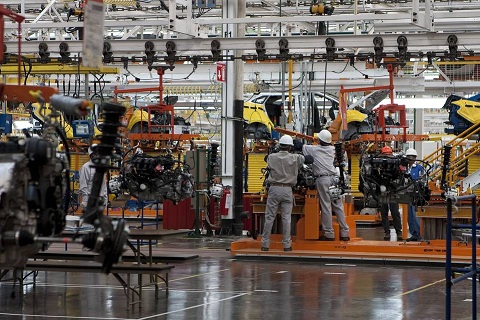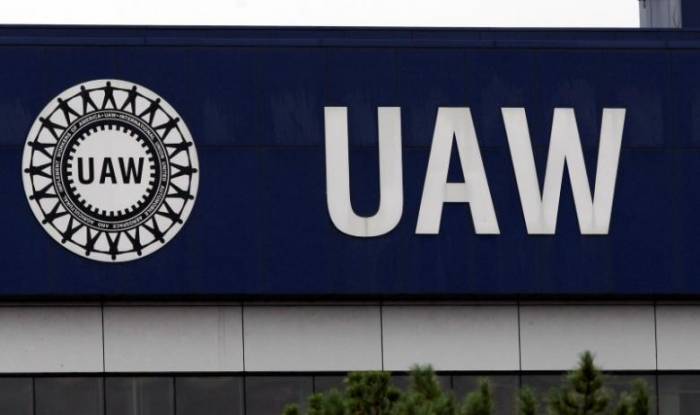Now Reading: U.S. content in Mexican autos greater than argued: Mexican industry group
-
01
U.S. content in Mexican autos greater than argued: Mexican industry group
U.S. content in Mexican autos greater than argued: Mexican industry group

Mexico’s major automotive industry group said on Monday U.S. material in vehicles made south of the border is far higher than Trump administration officials have told, as Mexican vehicle output and exports posted robust development in September.
The remarks came two days before trade negotiators from Mexico, the United States and Canada meet for a fourth round of talks on changes concerning the North American Free Trade Agreement (NAFTA) in Washington.
U.S. President Donald Trump argues NAFTA has burrowed American production, in particular in automaking, and sustained a U.S. trade deficit in goods with Mexico worth more than $60 billion.
Trump has threatened to ditch NAFTA if the deal can not be revamped in favor of the United States.
Last month, the Trump administration released a study revealing that U.S. value-added material was decreasing for produced items imported from Mexico and Canada.
The United States Commerce Department analysis of OECD trade in value-added information found U.S. material in automotive imports from Mexico dropped to 18.1 percent in 2011 from 26.5 percent in 1995. U.S. material in vehicle imports from Canada dropped to 26.4 percent from 34.9 percent over the same period.
However, Mexican Auto Industry Association (AMIA) president Eduardo Solis informed a news conference the figures did not tally with the group’s own analysis, which discovered that U.S. material in Mexican parts and components ranged between 37 percent and 39.5 percent, “depending on the scenario.”
In the case of Canadian parts, the U.S. content differed from between 48 percent to 52 percent, stated Solis, who spoke at a press conference revealing the current Mexico output information.
Under NAFTA, a minimum of 62.5 percent of the product in a car or light truck made in the region should be from North America to be able to enter the market tariff-free.
Trump administration officials argue greater content requirements will restore jobs to North America, though private-sector lobbyists say excessively high minimum thresholds will harm competitiveness and endanger jobs.
Stay Informed With the Latest & Most Important News
Previous Post
Next Post
-
 01Polestar Boss Says It’s Time To Outrun BMW M And Mercedes-AMG
01Polestar Boss Says It’s Time To Outrun BMW M And Mercedes-AMG -
 02Spy Shots: 2027 Mitsubishi Pajero Spotted in Testing Ahead of Possible U.S. Return
02Spy Shots: 2027 Mitsubishi Pajero Spotted in Testing Ahead of Possible U.S. Return -
 032026 Toyota Hilux EV: A Powerful Truck with Silent Torque
032026 Toyota Hilux EV: A Powerful Truck with Silent Torque -
 042026 Corvette ZR1 Production Surges Past Expectations as Output Clears 1,000 Units
042026 Corvette ZR1 Production Surges Past Expectations as Output Clears 1,000 Units -
![2027 Mercedes-Benz S-Class Debuts with V8 Engine [Photo Gallery]](https://speedlux.com/wp-content/uploads/2026/01/2027-Mercedes-Benz-S-Class-33-155x125.jpg) 052027 Mercedes-Benz S-Class Debuts with V8 Engine [Photo Gallery]
052027 Mercedes-Benz S-Class Debuts with V8 Engine [Photo Gallery] -
 06Spy Photos: VW ID. Polo GTI Goes Electric with 223 HP and 280 Miles of Range
06Spy Photos: VW ID. Polo GTI Goes Electric with 223 HP and 280 Miles of Range -
 07Hyundai Palisade’s Breakout Year Shows How Quickly the Market Can Turn
07Hyundai Palisade’s Breakout Year Shows How Quickly the Market Can Turn



![2027 Mercedes-Benz S-Class Debuts with V8 Engine [Photo Gallery]](https://speedlux.com/wp-content/uploads/2026/01/2027-Mercedes-Benz-S-Class-33-700x394.jpg)












































